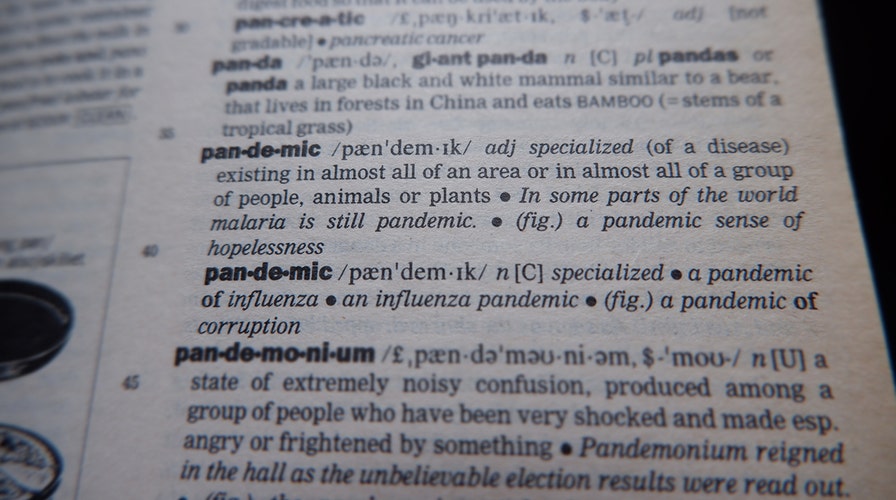Fox News Flash top headlines for November 23
Fox News Flash top headlines are here. Check out what's clicking on Foxnews.com.
Unprecedented times beget unprecedented updates to the English language.
That’s the major takeaway from the Oxford University Press — the publisher of the Oxford English Dictionary (OED) — in its “Words of an Unprecedented Year” report, which details the ways in which the ongoing coronavirus pandemic, as well as the rest of 2020, has changed the way we speak.
Monday’s report also comes in place of the OED’s annual “Word of the Year” announcement, which, as its name suggested, usually only highlighted a single new “word” of the year.
AMERICANS GOT THE WORST SLEEP OF THEIR LIVES IN 2020, SURVEY SUGGESTS
“The English language, like all of us, has had to adapt rapidly and repeatedly this year,” Oxford University Press writes in its report. “Given the phenomenal breadth of language change and development during 2020, Oxford Languages concluded that this is a year which cannot be neatly accommodated in one single word.”
Instead, the Oxford University Press detailed the many new words that began trending, or entering the language, from the beginning of 2020 onward.
Among some of the newly ubiquitous words observed by the analysts with Oxford included “bushfire” and “impeachment” in January, followed by “acquittal” in February, before landing on “coronavirus” in March. Other related terms — “COVID-19,” “lockdown,” “social distancing” and “reopening” — soon followed.

“We saw new words emerge, and historical words resurface with new significance, as the English language developed rapidly to keep pace with the political upheaval and societal tensions that defined the year," wrote the authors of the report. (iStock)
In fact, the analysts at Oxford University Press estimated that as of March, “coronavirus” was one of the most “frequently used” nouns in all of the English language.
“It is a sure sign that a word has become embedded in the language when it develops its own abbreviations, compounds, and other formations,” the report added, pointing to terms such as “pre-COVID,” “post-COVID,” “rona” and even “covidiot” as popular derivations.
CLICK HERE TO SIGN UP FOR OUR LIFESTYLE NEWSLETTER
The pandemic is also responsible for inspiring at least a few new work-from-home or lockdown terms, including “Zoombombing” (defined as “the practice of infiltrating video conference calls on the Zoom application, and posting violent, pornographic, or offensive content”) and “Blursday” (“a day of the week that is indistinguishable from any other”).
Other notable impacts on the language, as a result of 2020, include words brought to the forefront amid the Black Lives Matter movement, with terms like BLM, Juneteeth and BIPOC (Black, Indigenous and other People Of Color) spiking in usage in June and July.
Social movements including the BLM movement had also resulted in the “huge growth” of debates surrounding related topics, Oxford University Press claimed — debates which themselves sparked renewed usage of terms like “defund” or “decolonize.”
CLICK HERE TO GET THE FOX NEWS APP
“We saw new words emerge, and historical words resurface with new significance, as the English language developed rapidly to keep pace with the political upheaval and societal tensions that defined the year, as well as the ever-evolving spheres of technology and climate change, and the ways English across the globe has made its own mark on these developments to the lexicon,” the report said.
In other words, 2020 was really one for the books — reference books included.









































